|
Recently, my husband and I attended a virtual Catholic Marriage Summit called, “Joyful Ever After.” Several of the speakers mentioned the importance of cultivating the virtue of believing in your spouse’s best intentions rather than assuming ill will when a perceived grievance is committed. I thought back to a time when my husband and I were dating long-distance. He texted me that he would be arriving late to see me, which was very unlike him. I was a bit sassy in my response. What I didn’t realize at the time was that he was late because he ran into traffic while buying me a surprise bouquet of flowers. A podcast I listen to addressed this same predicament when we interpret our children’s actions before we know their true intentions. The mom on the podcast shared how terribly she felt after becoming upset with one of her children for making a mess of crafting supplies only to find out her child brought out the materials to make her a love note. Encounters like these provide us with opportunities to choose love. Making up stories in our minds that may not be—and most of the time are not—true does more harm to our relationships than good. Assuming good intentions from our spouses, family, friends and co-workers allows us to foster and strengthen relationships. Doubting someone else is a way of protecting ourselves. God is the one who gives us courage to trust others and give them the benefit of the doubt. Being less defensive makes others more receptive. Opening ourselves up to another allows us to share the hope and joy of the Gospel. We become more likeable, less distracted by imagined problems, focused on the actual issue, and are overall happier. After all, God gives us a second, third, fourth and ultimately infinite chances in response to our shortcomings. As James 2:13 says, “For the judgment is merciless to one who has not shown mercy; mercy triumphs over judgment.” Training our minds to think of others and the best intentions they have can both help us and improve our relationships. In many occasions, the person we are interacting with may be reacting from a previous interaction that overflows into our relationship with them. By keeping an open mind without judgement, we allow the Holy Spirit to enter our hearts so that we may reach out to the other with empathy and love. This serves as a reminder to us of our own humanity and imperfection. Believing in another person’s best intentions is an act of faith. To foster this line of thinking in my own marriage, every day I try to share something I’m thankful for about my husband. I try to think about this during prayer as well to help develop gratitude. When I don’t understand something that my husband is doing or has done, I try (very hard!) to ask open-minded questions in order to open dialogue instead of shutting the conversation down or arguing. Some other ways we can seek to see the best intentions in others are: asking for clarification, listening to what’s being said rather than waiting to share our own thoughts, and refraining from editorial comments that could aggravate the situation. During these unusual times, we could all benefit from more compassion and grace. Let us open our hearts and minds to seeing the best in others. For more resources on Marriage and Family, please click here. For more resources to accompany you through this time of COVID-19, please click here.
1 Comment
6/30/2020 Living the Mission of Jesus: Overcoming Racism by Entering In, Listening, and AccompanyingRead NowThe din of breakfast time in a house full of little ones required that I practically yell to my husband to be heard over requests for more milk: “I just feel so sad for our country. I feel sad that so many people are suffering. I’m sad about how devastated God must feel.” Before he could respond, my sweet, sensitive 5-year-old hugged my legs. “It’s okay to feel sad, Mom. But, why are you sad for our country?” And so our dialogue began. I gently told him about the injustices being faced by our Black brothers and sisters. I reminded him that God made each of us in His image, and that we are each deeply loved by Jesus. I reminded him that racism is a sin, and that Jesus conquered our sins by His death on the Cross. We love Jesus and honor His sacrifice by turning away from sin. And then I told him that we have work to do: as Catholics, we get to be like Jesus by fighting against racism. As believers, we are called to make the world more loving and just. So together, we enter this mission of Christ. Our baptism calls us and sends us out, equipping us to live as members of the Body of Christ. The Catechism calls us “members of each other, (CCC no. 1267)” and as such, we have a responsibility to live that way. Using the life and love of Jesus as the guiding principal of our faith, we are invited to acknowledge the suffering of those around us. Saint Paul writes in his letter to the Corinthians, “If one part suffers, every part suffers with it; if one part is honored, every part rejoices with it. Now this is the body of Christ” (1 Corinthians 12:26). This is unity as the Body of Christ: a people not positioned as ‘left’ or ‘right,’ for only the unborn or for only Black lives, but positioned at the foot of the Cross. Our Church, informed by the Gospels, calls us together to this work to uphold the dignity of the person, letting Jesus show us the way. Jesus was moved with compassion. At the death of Lazarus, he wept. At the woman’s desperation for healing, he allowed himself to be touched by her. He entered into the woman at the well’s loneliness and shame and met her with mercy. Jesus showed up heart first, revealing how we might accompany each other. As a white woman, I cannot know the suffering of the Black community. I can, however, emulate Jesus by allowing myself to hear and see hurt and be moved deeply by it. Instead of rationalizing, self-aggrandizing, or refusing to acknowledge the pain of another’s story, I open my eyes to see the brokenhearted—even when it challenges me, even when it hurts. Like Jesus, I weep for the loss of Breonna Taylor, George Floyd, Ahmaud Arbery, Rayshard Brooks, and so many others. I allow myself to feel and enter into the pain. I lean in until it makes me want to do something. Jesus stood with the vulnerable. God made flesh dwelled among us and was moved with compassion for his people. Seeing the suffering of Martha and Mary, he raised Lazarus from the dead. At the ailing and fear of the bleeding woman, he extended healing and peace. He saw the shame of the woman at the well and revealed himself as God to her, declaring her worthy of His life-giving water. In these examples and countless others, Jesus reveals himself as unapologetically for and with the least of these. As Catholics, we are called to this mission. In response to the just anger of our Black brothers and sisters, we stand in solidarity with all who experience the sin and effects of racism . Moved by this pain, we cry out to our Father for healing and peace. Using our voices, votes, and dollars, we stand for and with the Black communities and all affected by the sin of racism, declaring the value of each life and the dignity of each person. I am tempted to avoid this work. Showing up heart first the way Jesus did requires a vulnerability and humility I often lack. I become disproportionately concerned about being comfortable and being right. I am tempted to keep my head down, refusing to be moved and challenged by new voices and stories. Yet, I am called to look up. When I pridefully insulate myself from the pain of a hurting person or community by my refusal to enter in, openhearted, I deny the dignity of their personhood by not validating their experience. By guarding my hardened heart, I fail my baptismal calling. Jesus concerned himself more with loving the low in spirit than the repercussions of caring. He entered in, listened, and loved each person—especially the marginalized. So today I seek to live like Jesus. I choose to sit in sorrow for the pain of my Black brothers and sisters. I lift up my voice in prayer, confident that God sees and cares deeply about justice, unity, and life. I choose to look to the mission of Jesus to remember my own. Join me.
Recently, my life has changed a lot. I had my first child, Vincent Scott Pierno, on January 31st, and he is the greatest joy I’ve ever known. I never knew that becoming a mother could fulfill my life in the ways it has, and I thank God each day for the happiness, tears, and everything in between that he has brought into my life. As a family, we’ve also started house-hunting and looking for a place to settle within this busy and chaotic Washington, DC area. My in-laws will be moving in with us, and although they’ve already been an amazing help with the newborn, it’s another change to our lifestyle. Finding joy in these changes has been challenging at times, but not impossible through the grace of God. I invite you to join me in reflecting on change in our lives and ways to find joy during times of trial and tribulation. One way to work through life’s changes is through Scripture. There are so many examples we can look to that give us strength and remind us of the goodness in change. One is Philippians 4:6-7, which says, “Have no anxiety at all, but in everything, by prayer and petition, with thanksgiving, make your requests known to God. Then the peace of God that surpasses all understanding will guard your hearts and minds in Christ Jesus.” This passage gives me hope. It can be anxiety-provoking to go through so many changes all at once, but Christ gives us strength and we can do all things with his help. Another verse from Joshua 1:9 that speaks of courage during a hectic time is: “I command you: be strong and steadfast! Do not fear nor be dismayed, for the LORD, your God, is with you wherever you go.” In Scripture, we look at examples of people who have also found change difficult and needed support from God. This reliance is the definition of faith: trust and dependence on God through all things, even when the end is not in sight. Another way to work through life’s changes is through prayer. In prayer we can develop a closer relationship with God, and in this dialogue find joy in knowing Christ more deeply. Prayer can be done in many ways: silently, out loud, in reflection, through journaling, and even through participating in the Mass regularly. Since prayer is “both personal and communal,” we can encounter Christ however we feel most comfortable. I’ve found that the most important part of this prayer is not to always ask God for things, but to offer thanksgiving and to listen. The “listening” is the hardest to do. The chaos of a busy and a constantly changing life makes it even more difficult during challenging periods to take time and listen to God. However, it is in those hard times that we can deepen our relationship with Him. The final way I’d really like to impart is by keeping track of and celebrating joy. In this age of social media and 24/7 news updates, it’s easy to see so much negativity all around us. People gossip about others, worry about things that have nothing to do with them, troll people online for their own enjoyment, and trash talk things that people don’t need to even have an opinion about. This negativity can seep into our daily lives and we can get lost in it. I invite you instead to be a whirl of positivity. As Catholics, we are called to action by being missionaries in the world. St. Vincent Pallotti suggests this in his teachings, and brilliantly states this saying, “Remember that the Christian life is one of action; not of speech and daydreams. Let there be few words and many deeds, and let them be done well.” I find his words timeless. The deeds that Pallotti refers to can be simple ones, such as celebrating anything good that comes into our lives by posting it on social media or encouraging joy in the lives of others. We could truly create small havens of joy for people to encounter by simply finding the joy that already exists. Share this joy and gratitude with at least one person, whether in-person or online. Some examples from my life include sharing in my son’s new life and looking for the good in being home with him rather than the stress. Even something as easy as a smile could change someone’s day. I invite you to use these hashtags when you post about your joys as we get through this life together in Christian spirit! #joyinChristianaction #findingjoyineverything #discoverjoyfulmoments Tyler and Emily Lomnitzer were married at the Basilica of St. Mary in Alexandria, VA on August 31, 2019. Fr. Frank Donio, Center Director, con-celebrated the Nuptial Mass. Tyler and Emily met at The Catholic University of America and were engaged on October 7, 2018. They currently reside in Trumbull, CT. 1. What was some of the most helpful advice you received from the Church, friends, and family during the marriage preparation process? Tyler: The Church, friends, and family all stressed the same thing: take marriage preparation seriously. Some aspects may seem routine, or you may feel like you are already an expert at budgeting, conflict resolution, prayer life, etc. No matter our age, our academic pedigree, our level of holiness, or our level of discipline, we are not experts in these fundamental aspects of life and relationships, and marriage preparation is the first formal step in working through these things as a couple. Emily: The most helpful advice I received was from married friends of ours. One friend in particular urged us to stay close to the sacraments during the marriage preparation process because of the potential for spiritual attacks during this time. The enemy does not want good Catholic marriages! It was helpful to know what could happen and to be careful to stay close to each other and to the sacraments the Church gives us. 2. What are a few things you have learned since getting married that would be helpful for other couples who are preparing for marriage? Tyler: It sounds so cliché, but stepping into the other person’s shoes. For example, my wife, as a professional singer, is home or alone a lot during weekday business hours, whereas I am in a corporate environment interacting with tens, even hundreds of people in a single day. When I come home, my wife is excited for human interaction, but I need some alone time. It took some time for us to recognize and adapt to this. We did that by stepping into the other person’s shoes. Emily: Communication is so important! Even if you have been dating for a long time, it is totally different being married and living with your spouse. Being open about your struggles as well as joys constantly is critical to getting through those first few months of transition. 3. How were you accompanied throughout the discernment process of marriage and throughout your engagement? How are you being accompanied now in married life? Tyler: We are blessed to have had friends in all aspects of life to lean on and be open with. It’s so important to not be afraid to grab coffee or a beer with some close friends and ask them some hard questions about marriage. During engagement, we leaned on the priest preparing us for marriage, as well as some newlywed couples. During marriage, we are leaning on our parents and close friends and colleagues who have unique perspectives on things like conflict resolution and learning the psychology and personality of the other while trying to grow personally in virtue, holiness, etc. Emily: Through our engagement, we were blessed with having many friends who were living out their vocations, whether as married people and parents, or as priests and religious. It was great to speak with them and get their perspective through all the good and bad parts of the season of engagement. And those same people have accompanied us into our married life! It is a blessing to be surrounded by people who are constantly striving to live out their vocations and going through life together as a spiritual community. 4. What has been the best part about married life thus far? Tyler: Honestly, just coming home after work and knowing that my wife is there waiting for me. We have these subconscious kindness battles where we are always trying to do more for, give more to, and love the other person more. When you take marriage preparation seriously, and work so hard to empty your being for your spouse, God’s graces become evident and elevate your relationship. Emily: The graces that come with the sacrament are so abundant. It is so remarkable! Getting to spend every day married to a person who loves and supports you so fully and working towards the same goal is so amazing. For more resources on Marriage and Family, please click here. Spiritual accompaniment has been discussed greatly today within the Church and is an important theme of Pope Francis’ papacy. While accompaniment is manifested throughout the Old Testament and in Christ’s ministry, it is important for the Church to consider how best to implement it in modern times. What does accompaniment look like today? How do we best accompany others along their spiritual journey in deepening their relationship with Jesus Christ? The Art of Accompaniment: Theological, Spiritual, and Practical Elements of Building a More Relational Church, a Catholic Apostolate Center resource developed by Colleen Campbell and Thomas Carani, assists in the growth of true accompaniment within the Church today. Below are ten quotes from The Art of Accompaniment that summarize some of the major points of this important resource in order to introduce you to accompaniment and its role for Christians today. 1. “Since the creation of human beings, God has communicated his love through a relationship with humanity…The Old and New Testament reveal the Trinitarian God to be a God who accompanies.” God models accompaniment for humanity in his self-revelation and relationship with his people throughout salvation history. After the Fall, God revealed himself in his various relationships with important figures such as Abraham and Moses in the Old Testament, culminating in the sending of his Son, Jesus Christ, for the salvation of the world. God Himself is the first model of accompaniment. We look to His example in order to understand and implement accompaniment in the Church today. 2. “Spiritual accompaniment is the apostolate of intentional relationship that is oriented toward a definitive direction of growth in holiness and transformation in the Person of Christ.” Colleen and Tom define accompaniment succinctly: spiritual accompaniment does not happen by accident, but is the result of an intentional decision made by two people. The goal of spiritual accompaniment is a deepening in one’s personal relationship with Jesus Christ and in personal holiness that transforms both the mentor and the person being accompanied, as well as those they encounter. 3. “To remain committed to this deliberate choice of discipleship, a mentor is an active participant in their own spiritual formation, deliberately choosing the path of discipleship as their everyday way of life.” A mentor never ceases to pursue holiness, personal development, and spiritual formation. These are life-long endeavors to which the mentor and the person being accompanied dedicate themselves. 4. “Listening is a crucial practice of the mentor because it not only creates space for openness between mentor and the one accompanied, but also makes room for an awareness of the presence and action of God.” An important part of the spiritual life that Pope Francis has emphasized is the art of listening. We must be silent in order to hear the voice of God and the promptings of the Holy Spirit. The ability to listen well is also incredibly important to the art of accompaniment. When a mentor is adept in the art of listening, he or she affirms the dignity of the person being accompanied and humbly leaves room for the voice of God to be heard and acknowledged. 5. “Discernment is a supernatural gift of the Holy Spirit and useful in coming to identify the movements and actions of God in daily life.” Both the mentor and person being accompanied must grow in their ability to discern the work of God and the presence of the Holy Spirit. While there are many resources within the Church that help form a person in their understanding of discernment, it is ultimately a gift of the Holy Spirit. By praying for clarity, understanding, and wisdom, and by approaching the accompanying relationship in a posture of humility, both the mentor and person being accompanied create an environment in which the actions of God are received and acted upon. Ongoing discernment is crucial to spiritual accompaniment. 6. "Mentors are formed by the community as a result of encountering diverse groups of people, listening to different perspectives, seeking guidance from others, and worshipping and seeking Christ amongst the family of the children of God." The spiritual life does not and cannot exist in a vacuum; the same is true with accompaniment. Both the mentor and person being accompanied are formed by their parishes and communities. The beauty of our relational existence is that our communities of faith are comprised of all sorts of people. This diversity within our parishes enriches each member of the Body of Christ and deepens compassion, understanding, and a spirit of inclusion that helps the mentor better accompany another person. 7. "As they share the journey of the Christian life with the one accompanied, the mentor evangelizes the accompanied by fostering an encounter with Christ in their daily life, drawing connections between the Gospel message and their everyday experiences, and encouraging them toward ongoing conversion to Christ through the relationship of accompaniment." An important aspect of accompaniment is that it is a mutual journey towards Christ. Accompaniment does not happen only in Church settings and does not only address topics of faith—it encompasses an entire life. Our faith life also does not occur in a vacuum, but should impact and inform every aspect of our existence. As a result, accompaniment helps both the mentor and the one being accompanied to draw connections between the Gospel and everyday life. 8. "Those accompanied are open to formation and display their willingness to be formed by authentically seeking holiness, collaborating with their mentor, remaining humble in the midst of difficulty, and giving thought and prayer to challenges or new ideas…they must seek faith formation through study, catechetical ministry through parishes or Catholic institutions, and their own personal learning." Humility is a crucial component of an accompanying relationship—especially for the one being accompanied. The person being accompanied acknowledges the need to walk alongside a mentor and to be formed by them in order to grow in holiness and a relationship with Christ. Therefore, the mentor is an authority figure that respectfully and lovingly informs and collaborates with the one being accompanied, as well as with the Holy Spirit. Furthermore, the one accompanied also seeks personal formation in other trusted places. 9. "In the relationship of accompaniment, the marginalized are provided a space in which they can come to deeply know the love of Jesus Christ through friendship, guidance, and authenticity with a mentor." No one is exempt from an accompanying relationship—it is an important part of the spiritual life that all are invited to. A relationship of accompaniment results in the greatest treasure on earth: friendship with and love of Jesus Christ. A mentor is more than an authority figure. He or she is a friend, helper, and guide who affirms a person’s dignity and walks alongside another to build up the Body of Christ. 10. "The inspiration and model for the apostolate of accompaniment is Mary…In Mary, the Church has a model and intercessor for the apostolate of accompaniment." We cannot have a vibrant and lasting life of faith and thriving relationship with Christ without looking to and having a relationship with His Mother, Mary. The Blessed Virgin Mary always leads us closer to her Son. By looking to her and seeking her guidance and intercession, we can be sure that our efforts to accompany and be accompanied will bear much fruit. To learn more about The Art of Accompaniment and order your copy today, please click here. This week is National Vocations Awareness Week. When I tell my vocation story, I usually describe my vocation as a response to the great love that God has shown me throughout my life. I talk about what a joy it has been to fall in love with Christ and to give my whole life to him in a specific way in religious life. And that is absolutely true and beautiful. But if I’m being honest, it’s only part of the story. I am a novice with the Daughters of St. Paul, a congregation of women religious dedicated to evangelization through the media. Shortly before I entered the convent, I was plagued with a series of doubts regarding my vocation. I had discerned that God was calling me to enter religious life, but suddenly the vocation seemed too big for me. One time in particular, I went to my spiritual director deeply concerned that I had misrepresented myself to the sisters. When I looked in the mirror, I saw a normal 21-year-old. I’d watched The Office more times than I’d care to admit, had a newly acquired taste for craft beer, and had only kicked my swearing habit a few months before. As I prepared to move to the convent and begin my formation, I was worried that the sisters might be shocked to find out that I was still pretty far from being holy. “What makes you think that you haven’t been honest with the sisters?” my spiritual director asked me. “Whenever I visit the convent, I find myself acting like a much better person than I actually am. They’re going to find out the truth once they start living with me,” I explained. “Well,” he began chuckling, “Your vocation is the very thing that is going to make you into the best person you can be. That means you’re not there yet. But look, it’s already making you holier!” It can be tempting to think that we need to get our life in order before we respond to God’s call. We want to be perfect before we think that God can work through us. But friends, that day will never come on this side of heaven. And besides, that just isn’t God’s modus operandi. When we look at who God decides to call, it is never the person whom we would choose. Peter denied Jesus three times. Mary Magdalene had seven demons cast out from her. Paul, whom my congregation is named after, literally persecuted Christians. God is not afraid of our weaknesses or our wounds. In fact, it is often the very things that we view as obstacles to his grace that make us into powerful witnesses to his grace! The truth is, I’m not worthy of being called to be a religious sister. But no one is really worthy of this calling. That’s the beauty of a religious vocation and of the Christian life as a whole: it’s not about us and what we can do for God. It’s about God and what he wants to do in us. Every sacrifice that I’ve made in these past three years, every mistake, every time I have had to ask forgiveness or forgiven someone has served to make me into the person God wants me to be. So has every hour of Adoration, every Spirit-filled conversation, and every birthday that we’ve celebrated in community. There are these kinds of moments in every vocation where God uses something that seems strangely normal to bring us ever closer to himself. Vocation is a totally free gift that God has given to us. We could never earn or deserve it. It requires a response, but it begins with the fact that he has first loved us and desires to give us abundant life. That’s the truth about religious vocation— praise God for that. There’s something wonderfully intimate about entering an empty chapel or secluded church and embracing it for personal prayers. Our Lord continuously invites each of us to set aside our daily activities and distractions to spend some time gazing, discerning, and listening to Him who knows each of us better than we could ever understand ourselves. The ancient promise of Christ to “Come to me, all you that are weary and are carrying heavy burdens, and I will give you rest” assures us of the great love freely offered to us when we recall we are always in God’s holy presence. In doing so, the troubles and challenges we face in the world are trivialized and surrendered to God’s holy will so that our focus can be firmly fixed upon worshipping and honoring the One who calls us to Himself.
Whether it was in a parish church during the day, the school chapel in between classes, or even the private chapel of a religious community, my experiences of being able to utilize the simple intimacy and quiet of the moment offered me peace and sanctuary from the world. Of course, the Almighty is not restricted to the tabernacle of a church; His presence is infinite and forever available to us. There is, however, something affirming about entering into a space conducive to prayer and spirituality. The design and furnishing of a sacred space can draw our senses into an experience to better appreciate God’s presence in our lives. The light from outside may reflect colored light from stained glass windows upon the wall, the smell of candles or incense being burned convey that space is specially oriented to a higher purpose than what you just stepped out of, and the silence and lack of technology, advertising, or electronic distractions enable you to be more aware of your surroundings as you seek to hear God speaking to you. Encounters with the living God are not typically a Burning Bush or Annunciation experience; recall that the prophet Elijah sought to encounter God on Mount Horeb and found Him in the “sheer silence” rather than a strong wind, fire, or earthquake. We are all aware of the daily bombardment of digital content and of the professional, social, or academic obligations and expectations we face. They compete for our time and attention, can wear us down in routines, and force us to prioritize what is important for us to achieve. In our busy lives, we must actively choose to answer God’s constant and gentle call to “Abide in me as I abide in you.” He pours out His love for us freely, even when we are not always actively seeking Him or discerning His will for us. The Christian journey, then, is one of encounter and service; the love God extends to us is to be shared and offered to our neighbors, the marginalized, and even—especially—enemies. No matter our vocation in this life, our ultimate goal must be Heaven in the next. The saints are excellent role models in embracing the love of Christ and committing their lives to bringing that love to others. And while there is something beautiful about being the only person before the Lord in prayer and adoration, there is an even greater joy in bringing others to share in the experience and to worship God together. We do not walk the Christian way alone. As a wise friend of mine observed: "[W]e have to remember that the journey to heaven is not a solo trek. You seek to bring everyone with you. If one person falls, you travel to him or her, and help them get up, and you carry along together towards the destination. This is what God has entrusted us to do, to reveal such love as His love. Within our families, jobs, school, or wherever God calls us to be, we must give everything of ourselves in bringing others on the adventure, and helping them endure. Think of the image of exhaustively falling down on God’s doorstep after the journey is over. You look back, and see no one, because the ones traveling with you have gone inside already.[1]" [1] Joseph Cuda (lecture, Knights of Columbus Council #9542 business meeting, Washington, DC, November 3, 2013). http://knights.cua.edu/res/docs/Knights-Lecture-5-November-3-2013.pdf A little more than three years ago, I was asked to be the coordinator of my parish’s youth group. I had just begun college and taking on such a big responsibility seemed terrifying - it felt like I was trying to climb a very tall mountain and the top seemed impossible to reach. As I started this new position, I noticed that my group lacked organization, teen attendance, and the presence of trust because they did not know me as their leader. Working to create a semblance of routine and structure to use every Friday afternoon was probably the easiest thing to do, but attendance and building trust would need more work. We had about 4 teens that were committed to attending youth group every Friday. I asked myself, “How am I going to get more teens to attend? Where do I find them?” Another important question I asked was, “What will make them want to come back next Friday?” So, I got to work and created social media accounts under the group’s name to get the word out about our meetings. I spoke to the prayer group for adults that would meet at the same time and asked them to bring their teens to our group instead of leaving them at home. With a lot of prayer and thought, I realized that what these teens were lacking was an encounter with Jesus, so I would focus my talks on God the Father, Jesus, and the Holy Spirit. I also focused on doing group prayers where the teens had the opportunity to speak to God. As stated in Living as Missionary Disciples, “An encounter with the Lord brings about a profound transformation in all who do not close themselves off from him” (LMD 11). I witnessed this firsthand. Many teens started to come and seemed hungry to know more about God. Then came the third task: building trust. I noticed that these teens desperately needed someone to trust and wanted to be heard. Many times, we think that a young person has the perfect life. Most of these teens’ parents provide everything for them, including shelter, food, and clothing. It’s easy to think that all they do is go to school during the day and help around the house with a few chores. In reality, this isn’t true. I’ve come to learn that many of these teens experience peer pressure at school, have problems at home, and are constantly being bombarded with impossible standards on social media. The teens needed someone to walk next to them and listen to them. As Living as Missionary Disciples states, “The response to this encounter with Christ needs accompaniment” (LMD 14). The teens needed someone that would not judge them but instead be there for them. They needed to be able to be themselves and feel accepted the way they are despite their past or where they are now. As Living as Missionary Disciples also says, “We are not called to make judgements about others.” (LMD 15) Three years later, I have finished this pastoral ministry journey. I learned so much from the teens, such as the importance of having a personal encounter with God and the importance of accompanying the members of your ministry. Some tips I have for a pastoral minister include valuing the importance of constant prayer and regularly asking the Holy Spirit to come upon the ministry and give a vision of where to go and where to take the ministry. It’s also important to be able to recognize the needs of your community or within the demographic with which you are working and to be able to address those needs. There should also be a balance of “church work” and a healthy personal life. I personally lacked this balance and burned out, which led me to give so much and not take the time to give back to myself. Taking these measures will prevent the minister from burning out and help him or her be able to give more in the long run. For more tips on self-care visit our Self-Care for Healthy Ministry resource page. There are few sights like a church on fire. The fire which raged from the roof of the Cathédrale Notre-Dame de Paris on the evening of April 15, 2019 was different: thanks be to God that it (at this time of writing) does not appear to be caused by anything more than renovation negligence and that no one was killed in the blaze. The evening of the fire, the attention of the world focused on the smoke billowing above the Parisian skyline as first responders battled the flames to save the most iconic church in France. In the scenes broadcast from the River Seine, I not only saw the intensity of the fire that toppled the historic spire, but I also observed the more subtle fanning of the embers of a faith long thought to be extinguished in the hearts of the French people.
Watching a tragedy stirs up strong emotions within even the most hardened of hearts. Many scenes of prayers being offered or sacred hymns being sung—despite perhaps intense feelings of helplessness—were reported by passers-by, pilgrims, and tourists alike. Furthermore, support was expressed around the world for the Church and her members in France. The sight of the beautiful cathedral of the capital city apparently being irreparably damaged was a very sad one indeed, especially during Holy Week. The many treasures at risk included the Most Holy Eucharist and relics of Christ’s Passion. Different people took different meanings from that incredible sight: many were shaking their heads and crying at the destruction of a landmark cultural icon, others mourned the apparent loss of a grand local spiritual refuge, and some saw a Church which has long suffered against secularism appear in danger of collapse. Here’s what I observed: seeing a church burning on live television is indeed a heart-stopping scene, but I am—and dare I say God is—more interested in seeing hearts burn within a person! Seeing a man fully alive and in touch with his values, faith, or beliefs rather than suppressing them when inconvenient or unpopular is inspiring and a great witness. The voices of the people in Paris were publically lifted in singing ancient hymns and prayers for the salvation of the physical church building and the Catholic Church overall. Secularism has long been taking root in France, so seeing this active and public embrace of faith was incredibly touching. In times of despair or tragedy, people have been historically observed to seek sanctuary and emotional healing in churches and places of worship. Just think of cities in Europe, at risk of invasion or disease, in which people flocked to pray together for deliverance or divine mercy. Even in the United States after 9/11 and other heinous acts of violence, the churches with formerly empty pews were crowded with voices raised together in hopeful prayer to counter bowed heads of sorrow. As Christians we do not mourn like those who have no hope, but even in our sadness we can lift our eyes to God, breathe to calm ourselves, and confidently pray, “Speak, Lord, for your servant is listening.” From these collective acts of faith, the hope of spiritual renewal can be strong. The seeds of faith instilled in youth but unnourished later in life may suddenly be rediscovered and re-cultivated by God’s grace and perhaps the shock of the sudden end of the status quo. Intense personal reflection and the reevaluation of priorities may ensue to further sustain spiritual growth and comfort. Imagine the state of the Church had the apostles not been inflamed with the indwelling of the Holy Spirit at Pentecost. Just as those followers of Christ rediscovered God in the Upper Room thousands of years ago, so too can we encounter the fire of the Holy Spirit to bring light to the confused, healing to the broken, and peace to the conflicted. The fires of faith have not been extinguished, as we have beautifully seen, but rather the embers are still hot and glowing, just needing to be stirred up again to blaze towards Heaven. As Pope Francis tweeted, let us “unite in prayer with the people of France, as we wait for the sorrow inflicted by the serious damage to be transformed into hope with reconstruction. Holy Mary, Our Lady, pray for us.” May Notre-Dame, our Blessed Mother, pray for us! For the past few weeks, bishops from across the globe have met in Rome for the XV Ordinary Assembly of the Synod of Bishops to discuss Young People, the Faith, and Vocational Discernment. This is a momentous time for the Church, one in which she has paused from her work in order to listen and dialogue with a powerful age group in our world today: young people. In imitation of Christ Himself, who sat down during His ministry and said, “let the children come to me,” the successors of the Apostles are engaging the young people of the world in order to learn from them, engage with them, and better accompany them on their faith journey. But what does this mean for the rest of the Church? What does this mean for us personally? The Synod is not just an event occurring in Rome, nor a series of documents and pastoral initiatives. Below I have compiled 5 key take-aways from the Synod that we can apply to our own spiritual lives. 1. Invite the Holy Spirit. In his homily for the opening of the Synod, Pope Francis reminded his brother bishops to call upon the Holy Spirit before embarking on their work. “It is the Spirit,” Pope Francis said, “who ensures that the richness and beauty of the Gospel will be a source of constant joy and freshness.” This is true for each of us. Christ left us with the gift of the Holy Spirit after His Ascension into Heaven; the Holy Spirit is our Advocate and remains with us today, present in our hearts as a result of our Baptism. Before embarking on our work on earth, let us call upon the Holy Spirit in order to guide us and ensure we are faithful to our mission. It was the Holy Spirit who transformed the cowering Apostles into bold missionaries, evangelists, and martyrs. The same Holy Spirit leads us today and helps us fulfill our baptismal call. Invite the Holy Spirit into your life, work, and day to day actions in order to live out the richness and beauty of the Gospel that Pope Francis mentions. 2. Listen. The Synod participants have been encouraged to listen intently to what the young people of the Church have to say. This attitude can only be successful if it stems from a posture of humility, an openness to the other, and a flexibility to adapt our perspective based on what we learn. All of us are called to listen to and accompany those we encounter in our day to day life. This is especially true for those of us working in ministry, but can be applied to whatever circumstance we find ourselves in. We live in a culture that seems afraid of listening. Listening is often associated with vulnerability. It opens our minds and hearts to the perspective, ideas, and dreams of the other—whether or not we agree or resonate with these personally. However, “love for the Gospel and for the people who have been entrusted to us, challenges us to broaden our horizons and not lose sight of the mission to which we are called,” Pope Francis said. Listening to another person challenges us to step outside of our comfort zone and acknowledge the truths of the other. Only by listening can we hope to dialogue respectfully with those who might not share our worldview or beliefs. 3. Discern and be silent. After calling upon the Holy Spirit, we need to create a space of silence where we can listen to God’s promptings. For the first time in a Synod, Pope Francis has instituted 3 minutes of periodic silence for participants to reflect on what’s been shared and on what God is stirring in their hearts. This is a wonderful example of ongoing discernment, which invites God into our life and asks Him to guide us in our everyday actions and decisions. “Discernment is the method and at the same time the goal we set ourselves,” Pope Francis said. “It is based on the conviction that God is at work in world history, in life’s events, in the people I meet and who speak to me.” We can also learn from the spirituality of The Society of Jesus, which emphasizes being “contemplatives in action.” This spirit of discernment is radically different from the world of busyness and noise we often find ourselves in, but it also is capable of existing within that world. When we periodically withdraw into the inner room of our hearts and pray to our heavenly Father in secret, we become better attuned not only to His presence in our hearts, but also to God’s presence in those around us. 4. Be flexible. Sometimes, it is easy to come up with preconceived notions of how things ought to be done or to maintain an attitude of “it’s always been this way.” Throughout his papacy, and once again at the beginning of this Synod, Pope Francis has challenged the Church to be flexible and to shatter our temptation to conform. In his homily for the opening of the Synod, he called the Church to “broaden our horizons, expand our hearts and transform those frames of mind that today paralyze, separate and alienate us from young people.” A healthy flexibility is key to our well-being in whatever vocation we find ourselves. Flexibility also relies on humility and allows us to admit that we don’t always have the right answers. When we as a Church are flexible, we are better able to encounter others and work together to seek the truth of the Gospel. 5. Dare to hope, to dream. A great gift that young people can give the Church is their ability to dream. Young people have passion, enthusiasm, hopes, and dreams that offer freshness and renewal to our Church and to the world. This is even more important in a world laden with suffering and problems, where it is easy to succumb to a defeatism or a pessimistic attitude. Pope Francis reminds us that “The future is not a threat to be feared, but is the time the Lord promises us when we will be able to experience communion with him, with our brothers and sisters, and with the whole of creation.” When our faith is rooted in the goodness and beauty of Christ Himself, we are better able to share His joy and hope with the world. Let us learn from the vigor and hope of young people today. May it be contagious, so that others are drawn to ask us for an account of our hope. As Pope Francis concluded in his Address at the Opening of the Synod of Bishops, “Let us therefore work to “spend time with the future … to plant dreams, draw forth prophecies and visions, allow hope to flourish, inspire trust, bind up wounds, weave together relationships, awaken a dawn of hope, learn from one another, and create a bright resourcefulness that will enlighten minds, warm hearts, give strength to our hands, and inspire in young people – all young people, with no one excluded – a vision of the future filled with the joy of the Gospel.” For more resources on the Synod on Young People, the Faith, and Vocational Discernment, please click here. There are about a million things I could say in praise of being a Catholic in Rome. The Eternal City is one of the most significant locations for our faith, and it is almost impossible to come here and not experience Catholicism in some way. Everywhere you turn there is an incredible church that you’ve never even heard of, a monument related to our past, and of course the constant shadow of Saint Peter’s. But beyond that, the history and culture of the city are impossible to separate from the role this place has taken in forming and guiding our Church throughout centuries. You can become almost supersaturated with the beauty of it all, and if you choose it, the experience of being here can be transformative in the faith. But what does it specifically mean to be a young Catholic in Rome? How can you describe the experience of being in one of the oldest places, while simultaneously knowing that you are one of the newest things on the planet? And what responsibilities do we have as young people while here, especially during the current Synod? I am so lucky to be able to study abroad in Rome this semester. One of my classes here is Church History, which includes a weekly visit to a historical site of the faith and a discussion of its role and development within the early Church. I’m a little shocked at how much I thought I knew, and then learning something I never understood about our past. Nothing is more convincing of the fact that the Church is a survivor than one look at its history. The number of upsetting things that I have learned about in the Church’s past are always overcome somehow by the next generation in a manner and consistency that is honestly shocking. Today, this strikes close to home for me, and I’ve come to more deeply see my role and responsibility as a young person called to renew the Church. My course on Church History has been eye-opening in understanding the adaptability and beautifully dynamic nature of our faith, as well as the importance of strong members of the Body of Christ stepping forward to guide her in holiness. In Rome, the city itself is a testimony to the consistency of the faith and its principles, as well as the varied ways this faith has been passed down over the centuries. This is the knowledge that dictates the responsibility of a young person in Rome. It is a gift to be here and a privilege to see these places that hold such significance in our faith. But to view being a young person in Rome as a mere occasion to take and absorb the city without seeing the opportunity and even responsibility to contribute something to the narrative would be a mistake. If there is any place to learn that the Church is built on the living out of the Gospel, it is here, where ancient structures meet the next generation in the ever old-young duality so present in our faith. The Synod of Bishops on Young People, the Faith, and Vocational Discernment is going on in my (current) backyard and is literally designed for me as a young person! One of the coolest sections of the Instrumentum Laboris (the working document of the Synod), in my opinion, is Chapter V, titled “Listening to the Youth,” where it talks about what it means to be open to the real and organic ideas and needs the youth have. It is our responsibility now to take up the Church on her offer to listen to young people by speaking. You don’t need to be the most involved person in the Synod, but perhaps you can learn more about it, read the documents that come forth from this meeting, pray for good fruit to bear, and engage with what is going on. To be in Rome as a young person right now is to be in Rome trying to make our faith more understandable and encounterable for all young people. It is more than an opportunity to evangelize, it is a responsibility. The Synod talks about Jesus’ role as a young man preaching to a young Church. How incredible is it to be the echo of that in the present Church today? May God give us the grace to live that role well. For more resources on the Synod on Young People, the Faith, and Vocational Discernment, please click here. Christian accompaniment is best understood through the Gospel story of the Road to Emmaus. If Emmaus is Heaven, each of us is on our own journey: afraid, confused, and attempting to make sense of the joy of the Resurrection. Each of us needs someone to walk beside, someone who will minister to us by simply listening, then understanding, and advising. On this journey, our earthly traveling companion is on one side and Jesus is on the other. The disciples couldn’t have come to understand the Paschal Mystery or their relationship with it until they let Christ be their guide.
As a precursor to the 2018 Synod, the Synod of Bishops released their working document, or Instrumentum Laboris, on Young People, the Faith, and Vocational Discernment. In its second part, the document discusses the necessity for vocational accompaniment, defined as “a process that is able to unleash freedom, as well as the capacity to give and to integrate the various dimensions of life within a horizon of meaning.” Though a rather lofty definition, it is clear that accompaniment centers around a proper understanding of discernment. Discernment can be a confusing Catholic buzzword. For some, the mere thought of it causes extreme panic, while others understand it as equivalent to “religious life.” I can’t count the number of conversations I’ve had where someone leans over to me and asks in a hushed tone, “Are you discerning?” to which I respond bluntly, “EVERYONE is discerning!” Every young person is constantly discerning not only our capitol “V” Vocation (such as a call to religious life, the priesthood, or to marriage), but also our vocation for every year, month, or moment of our lives. Each day is an opportunity to ask to know God’s will. Even a small daily prayer invites Him to let the Spirit work in our lives. With this definition of discernment in mind, accompaniment is the simple act of being present to someone, forming a relationship in order to walk with him or her towards an understanding of Christ’s will. The Synod’s Instrumentum Laboris says that there are many kinds of accompaniment. Whether it be formal spiritual direction, psychological accompaniment, advisement from a trusted elder, etc., accompaniment is necessary for the spiritual journey. We cannot live out our faith alone. We need others to share with, to learn from, and to pray with in order to grow as children of God. In my own journey, I have been blessed to be accompanied by many different disciples. My parents were the first to show me what it means to be accompanied in and through love. In high school, a few wonderful teachers gave me room to grow and begin to understand how Christ was speaking in my life. In college, I learned how to open myself to totally new companions and walk with college-aged ministers. In the most traditional sense, an excellent diocesan priest and longtime friend welcomed me in spiritual direction last year and together we learn how God is calling me to serve Him as I grow as a person and daughter. I know accompaniment is important because when I try to walk the road alone, I am met with a sense of isolation and confusion. When I made the decision to study abroad in Rome for the semester, I never realized the sort of impact it would have on my spiritual life. Leaving my closest companions, faith friends, and spiritual director behind in the United States, I felt unable to cope with the new challenges I’m facing. I’ve come to realize that without those spiritual relationships, the journey towards Christ becomes far more difficult. To accompany and to be accompanied are not positions to be taken lightly, and hopefully this Synod will show the Church how to better foster these sorts of relationships. In a time where many of us are feeling betrayed or isolated by the Church, it is difficult to trust that She is the source of these types of reliable and authentic relationships. As young people, however, we have to trust in the healing mercy of the Holy Spirit and the grace bestowed upon our Church’s shepherds. It is not an easy time to be a Catholic or a young person, but that is all the more reason for us to persevere on the journey with a companion on one side and Christ on the other. Have you ever made a bargain with God? I have—I do it all too often! “Listen Lord, I promise to pray every day and spend more time with you if you would just please fix… (fill in tough situation here).” I have come to the realization that I do this without being so explicit. I expect, subconsciously, that because I strive to be a “good” Christian my life’s outcome will be perfect, without suffering or challenges. I wrongly think that if I finally start walking in my identity as a beloved child of God then all my human sufferings will dissipate and my time on earth will contain a storybook ending. It’s a results-oriented mentality: if I put in good work, then I will get a “good” outcome, almost like a math equation. This realization was spurred from walking with friends who have been enduring profound suffering: childless friends who want the gift of a child, friends who have lost babies, friends who are waiting ever so patiently for their vocations, and friends who have been persevering faithfully through physical and mental trials. I have been wondering during prayer why these good people are getting such poor results. “This is not how it should work, Lord, they are good people, and they love you,” I tell Him. The problem with a results-oriented Christianity is that it typically results in disappointment—disappointment in yourself, and ultimately even doubt in God’s infinite goodness and love. Enter Mary, the Mother of our Lord Jesus Christ, who completely destroys this toxic thinking. A few of her titles are: Mother Most Pure, Virgin Most Powerful, Morning Star, Mother Most Chaste, Mother Most Faithful, Mirror of Justice—the titles continue, but the point is that she is the perfection of humanity. She is without sin. She prayed perfectly. She said “yes” to the Lord with total trust and love. In her goodness, Mary teaches us how to be good, how to be more like Her and Her Son. I used to struggle with Mary. I mean, she’s perfect. She’s called the Morning Star, for crying out loud! It’s a tad intimidating to attempt to imitate Her. Then, I pondered Her life’s “result” and Her humanity seemed more relatable. Though perfect, she experienced emotion, and she experienced deep suffering—from losing Her Son in the Temple, to standing at the foot of the Cross as Her Son gave the ultimate sacrifice for you and for me. I cannot imagine the pain Her Immaculate Heart suffered. The Mother of our Lord shows us that the Christian life is not one that lacks suffering—rather that the Christian life is one of faithfulness during times of joy and hardship. In her book Cause of Our Joy, Mother Mary Francis, a contemplative Poor Clare nun and spiritual writer, expounds on another Marian title, Mary Inviolate, meaning “being without violation.” One might look at the result of Mary’s life and see many “violations,” but her peace, trust, and humility in the Father’s Goodness surpassed any fear of suffering. Mother Mary Francis says, “With [Mary’s] help, I will not let every little thing that happens to me disturb me, break in on the peace of my heart, make fissures in my prayer, make cracks in my relationship with Jesus … She could suffer without being violated, so that she could go forward in her life inviolate, unassaulted, nonfissured, with no fortifications destroyed ... Only our reactions assault us. Other things can merely invite us to suffer with the Man of Sorrows and Our Lady of Sorrows” (Francis, 30). Suffering is always an invitation to grow closer to the Lord—to realize that we’re never alone. If we pray, trust, and hope through suffering like Mary did, then we start to move away from a results-oriented Christianity, where we treat our relationship with the Lord like a math equation, and toward true discipleship, where we follow wherever the Lord leads us. When we next encounter suffering—which is inevitable in the Christian Life—may we say “yes” as Mary always did. When we struggle through our suffering, may we go to Her open Heart that has suffered so greatly and there find the understanding, peace and love that only a Mother can tenderly bestow. Question for Reflection: Do I turn to God and His Mother like I would a beloved friend or family member when I suffer? Do I pray only for an alleviation or my suffering? Or do I “talk through” my struggles like I would with a friend or family member? How can I approach the Lord and His Mother like I would these confidants I have on Earth? A man named John was sent from God. He came for testimony, to testify to the light, so that all might believe through him. (John 1:6-8)
The first word that comes to mind upon reading this Gospel is humility. In response to questions from the priests and Levites, John explains that he baptizes not as Christ, Elijah, or the Prophet, but as “the voice of one crying out in the desert, ‘make straight the way of the Lord’.” John is so quick to point out this distinction, so quick to give credit where he feels credit is due. Reflecting back to my years of service as a Lasallian Volunteer and Good Shepherd Volunteer, I think I could have used a slice of this humble pie. How often did I consider myself “the light,” taking on the responsibility to serve, or save, the communities I entered? How often did I fail to see the parts of myself that needed saving, and that this saving work was never really mine to begin with? Thanks to time, perspective, and most of all, the grace of God and those I have encountered, I continue to be humbled - moved beyond my self-righteousness, and into a space of more authentic listening, learning, and loving. These moments, in all their discomfort and vulnerability, become my testimony; through the gift of growth, I can “testify to the light.” Focus on: COMMUNITY In this Gospel, the questions posed by John’s community invite him to name who he is and what he is about. Community often provides this challenge and gift - holding a mirror up to our past, present, and future and reflecting how all these complexities meld and meet the world. How do your communities help you own your truth? In community, how can we help each other “testify to the light” within? SERVICE SUGGESTION: Spend some time reflecting upon someone in your community who has helped you grow more into who you aspire to be. Write a note of appreciation, take them out to coffee, or find some unique way to affirm them and acknowledge the influence they have had. PRAYER: Our Power to Bless One Another by John O'Donohue (Excerpt from To Bless the Space Between Us) In the parched deserts of post-modernity a blessing can be like the discovery of a fresh well. It would be lovely if we could rediscover our power to bless one another. I believe each of us can bless. When a blessing is invoked, it changes the atmosphere. Some of the plenitude flows into our hearts from the invisible neighborhood of loving kindness. In the light and reverence of blessing, a person or situation becomes illuminated in a completely new way. In a dead wall a new window opens, in dense darkness a path starts to glimmer, and into a broken heart healing falls like morning dew. It is ironic that so often we continue to live like paupers though our inheritance of spirit is so vast. The quiet eternal that dwells in our souls is silent and subtle; in the activity of blessing it emerges to embrace and nurture us. Let us begin to learn how to bless one another. Whenever you give a blessing, a blessing returns to enfold you. *This post was published in the 2017 Advent Reflection Guide, a collaborative effort between the Catholic Volunteer Network and the Catholic Apostolate Center. Click here to view the full guide. Katie Delaney is a former Lasallian Volunteer and former Good Shepherd Volunteer. To learn more about faith-based service opportunities through the Catholic Volunteer Network, please click here. Today we are re-posting a blog from our archives on the many ways we can use prayer to communicate with God. Consider adopting one of these forms of prayer into your weekly routine as you strive to strengthen your relationship with the Lord.
10/8/2015 In a classroom of 25 students, sometimes it gets a little noisy. Just simply saying, “In the name of the Father, and of the Son…” in my Catholic school can quiet a room faster than the loudest bell or my scariest tone of voice. Students can begin the day with prayer, end it with prayer, and say it before meals. However, prayer in a student’s life can come in many forms. Rejoice always, pray continually, give thanks in all circumstances; for this is God’s will for you in Christ Jesus. (1 Thes 5:16-18) In my school, we try and encourage our students to “find God in all things.” This is a beautiful way to appreciate God’s creation and look for Him throughout our lives in the people we meet, places we go, and in everything we do. For second graders, these moments of thankfulness can be tricky to find, but when they discover that it can be as easy as thinking, “Thank you God for the opportunity to be in school today and learn about volcanoes,” the difficulty fades away. Then you will call on me and come and pray to me, and I will listen to you. (Jer 29:12) Another form of prayer I use in my classroom is silent reflection. Responses vary from boredom to feeling peace. I remind the children that prayer is a chance to talk to God about something or sit in the silence and listen for God talk to them. This quiet peace is what helps us reinvigorate our afternoons for more learning! This is the confidence we have in approaching God: that if we ask anything according to his will, he hears us. (1 John 5:14) Recently, journaling has been my students’ favorite form of prayer. We handed out small prayer journals so that each student could write prayers from the heart to God. Letting them know their writing is private and personal was a crucial part to helping them understand that prayer can be an intimate conversation with the Lord about anything and everything. Children learn about prayer from those closest to them, so for those who have children, I challenge you: be a role model in prayer. Take just a few moments in a day, especially with your child, and pray. ■ The Lord’s Prayer is a good place to start if you don’t know what to say! ■ The Rosary is a beautiful way to ask Mother Mary to intercede for us on a regular basis. ■ The Serenity Prayer is a lifesaver for me sometimes, it helps me think about what things in life I can change and what things I cannot solve! It is a truly beautiful prayer to memorize. My students may not realize it now, but one day (hopefully soon) this whole “prayer thing” may click for them. All the eye-rolling and goofing-around may one day stop. If only for a moment, my second graders may actually feel the presence of God. For a moment, they might believe God is answering a prayer request they made. They may earnestly thank the Lord for the day they’ve just had. These many forms of prayer that are presented to them throughout the day may click, hopefully in such a way that they might even try to pray on their own. For more resources on Prayer and Catechesis, please visit http://www.catholicapostolatecenter.org/prayer--catechesis.html. Originally published on 10/8/2015. |
Details
Archives
July 2024
Categories
All
|
About |
Media |
© COPYRIGHT 2024 | ALL RIGHTS RESERVED



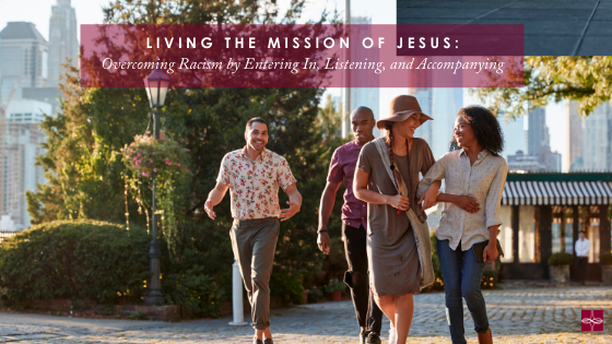

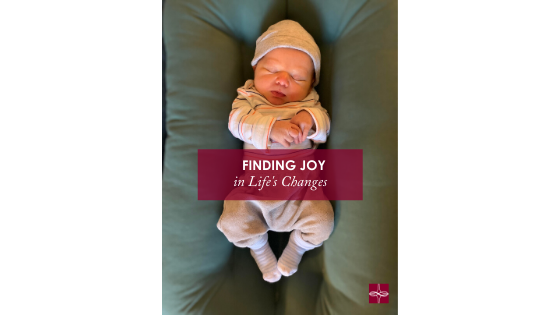






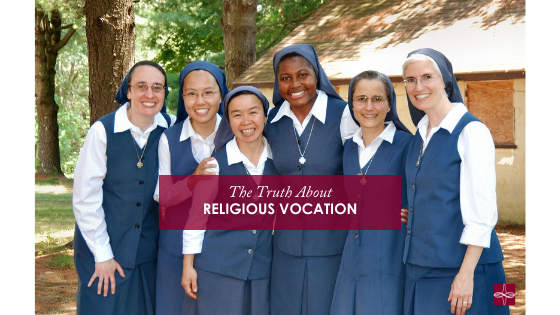




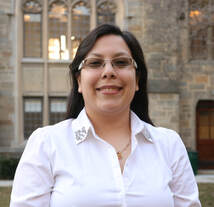
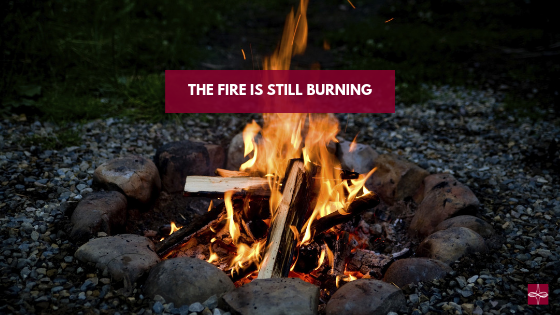

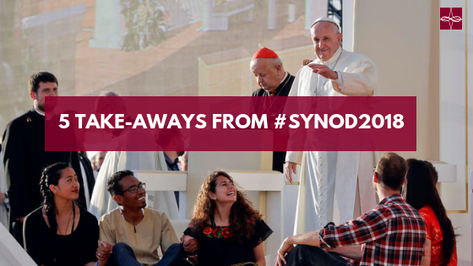

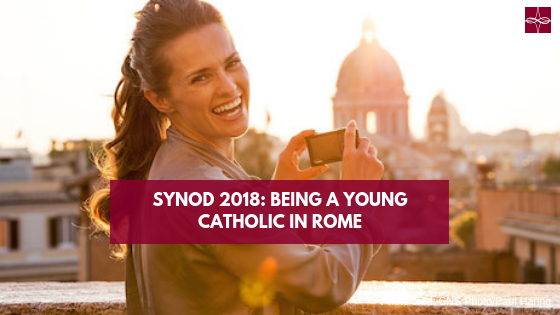



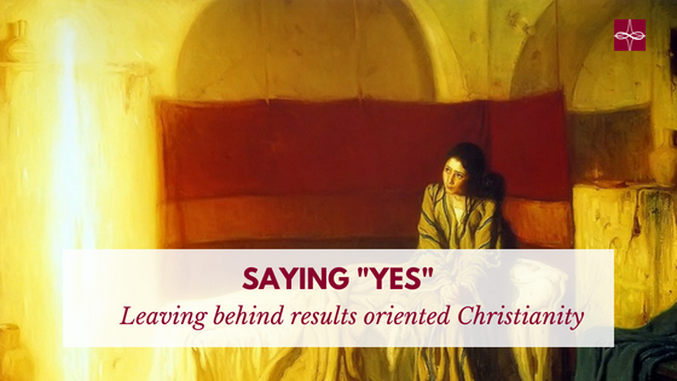




 RSS Feed
RSS Feed